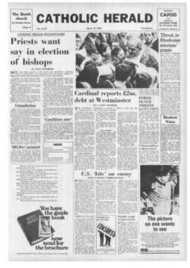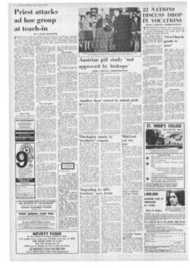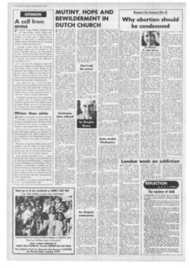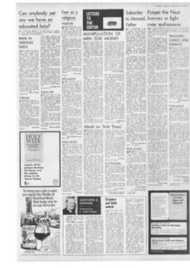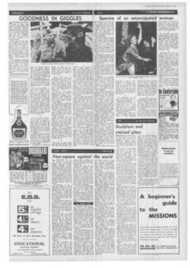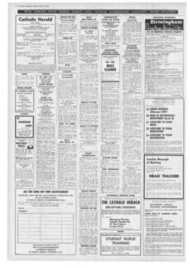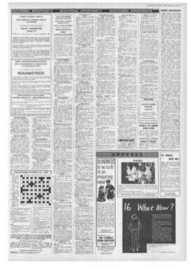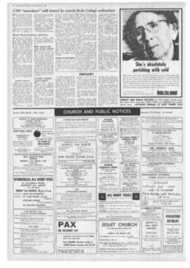Page 1, 14th March 1969
Page 1
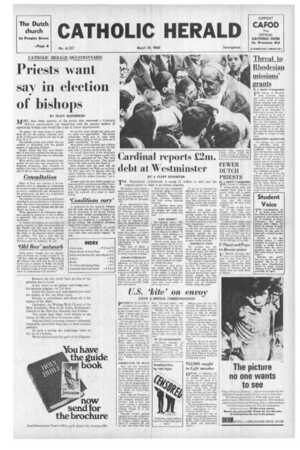
Report an error
Noticed an error on this page?If you've noticed an error in this article please click here to report it.
Tags
Share
Related articles
No American Envoy For Vatican
Vatican Keeps Watch On Drugs Problem
U.s. And Vatican
Opposition To U.s. Envoy At Vatican Renewed
Us Envoy For Holy See
U.S. 'kite' on envoy
FROM A SPECIAL CORRESPONDENT
PRESIDENT NIXON'S statement that sending a permanent American envoy to the Vatican was a "possibility" is being regarded as a "trial kite" in both religious and diplomatic quarters.
It is thought that Mr. Nixon "flew the kite" at a news conference last week for the purpose of determining how much opposition the proposal would arouse among Protestants.
An important American Protestant organisation, the Baptist Joint Committee on Public Affairs composed of leaders of eight Baptist denominations with more than 20 million members — has appealed to the. President to keep U.S. relations with the Vatican on a "flexible and informal" basis.
IMPORTANCE TO PEACE They said they recognised the importance to world peace of maintaining open lines of communication with such an important world listening post as the Vatican. But they considered formal diplomatic relations with the headquarters of the Catholic Church would not be "consistent with the American model of Church-State relationships."
They urged the President to "make the widest use of present and emerging informal relationships open to him" and "avoid naming a permanent representative to the Roman Catholic Church or to any other Church."
President Nixon's guarded remarks at his news conference Left both Protestant and Catholic religious leaders guessing about his intentions. He said his talk with Pope Paul had
been "extremely helpful," and added: "I want that line of communication kept open.
"Whether we can have it kept open based on present facilities that are available have not yet determined. That matter is still under study. But what is important is that the United States have with the Vatican close consultation on foreign policy matters in which the Vatican has a very great interest and very •greal influence."
`UP TO GOVERNMENT Archbishop Dearden of Detroit, president of the National Conference of Catholic Bishops, said next day: "It is the responsibility of our Government to decide whether it wishes representation at the Vatican." Making clear that the Catholic Hierarchy was not lobbying for appointment of an envoy, he said the President should do what he thought would "best further the cause of world• peace,"
Protests against the idea of a Vatican envoy had been made previously by the National Council of Churches Committee on Civil and Religious Liberty. by Americans United for Separation of Church and State, and by other Protestant groups.
President Roosevelt sent the industrialist Myron C. Taylor, an Episcopalian, to the Vatican as his "personal envoy." President Truman wanted to send Gen. Mark Clark as his envoy, but backed down in the face of a Protestant outcry.
blog comments powered by Disqus


